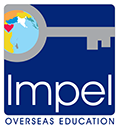If the first language you learned as a child was something other than English, taking the Test of English as a Foreign Language, or TOEFL, will be an unavoidable step in the process of getting into a U.S. college or university.
Thanks to its goofy acronym, the test may sound harmless, but don’t be fooled – it’s a demanding four-and-a-half hour exam to gauge your English proficiency that ultimately could make the difference between admission and rejection from your dream school.
I ended up taking it twice – first to get into college and later to transfer to another school. In Sweden we learn English from early on and I scored fairly well on my first try, but could easily have done much better with just a little bit of preparation. Here are some ways students can improve their chances of a good TOEFL score.
1. Don’t try to cram: You may be able to memorize the entire periodic table of the elements in one night, but a language cannot be mastered in that same time frame. The test involves all aspects of the language – speaking, writing, reading and listening – which is far too much to cover in eight to 10 hours.
2. Remember that learning is doing: Since you can’t cram, start preparing well in advance. With some creativity you can easily turn your studying into something far more pleasant than crouching over a stack of books.
Languages are best learned when spoken. Make an effort to speak some English every day, whether it is with your parents, siblings, friends or your dog. All practice is good practice.
I took the opportunity to get back in touch with a few Americans I had met the previous summer. My speaking skills surged, and so did my parents’ phone bill.
When it comes to reading, the Internet is your best friend. The texts you will be quizzed on can be anything from biographies to scientific articles. Browse websites you usually do not spend time on and read about things you normally would not pay attention to. Time magazine’s website is an excellent starting point.
To practice listening, watch movies and TV shows without subtitles, or download and listen to podcasts. I fell in love with National Public Radio, which has a broad spectrum of interesting shows on different topics.
If you feel unsure about your writing, practice by arguing for or against a certain statement, such as whether parents are the best teachers or whether teenagers should have jobs while they are still in school.
State your answer in the first paragraph, make your points in the following paragraphs and finish with a concluding paragraph. Ask your English teacher to correct your essay – he or she will most likely be more than happy to help.
3. Get familiar with the exam: Uncertainty about the format of the test could make you anxious on test day, but a simple Google search will calm your nerves. There are lots of online practice tests that will give you a taste of what to expect on the test day, at no cost.
The Internet-based test (iBT) begins with a reading section that lasts about 60-80 minutes, and then jumps straight into a listening section that lasts 60-90 minutes.
After that, you get a 10-minute breather and have a chance to go to the bathroom.
Next comes the speaking section, which takes 20 minutes, followed by 50 minutes set aside for writing. At that point you’ll probably feel rather exhausted, but try to keep it together. It will be worth it.
4. Get some rest: Finally, make sure to stay in and get some rest the night before. I can vividly remember walking out of the test center – even after my second time – ready for a nap. It’s a long exam and the more stressed you are, the more it will drain you.
If you choose to throw in the towel and walk out of the test center without having done your best, you might have to retake it and fork over another registration fee. The cost varies but generally spans $160 to $250 – money that I, a two-time test-taker, would much rather have spent on something else.
It will feel far better if you walk in prepared, stay calm during the exam and get to go home feeling content about your effort. If you do that, you could be one big step further on your path toward studying in the U.S.
Anders Melin, from Sweden, is a former collegiate swimmer for Limestone College and the University of Missouri, where he earned an undergraduate degree in finance. He is now pursuing a master’s degree in journalism at New York University.
TOEFL is a registered trademark of Educational Testing Service (ETS).




